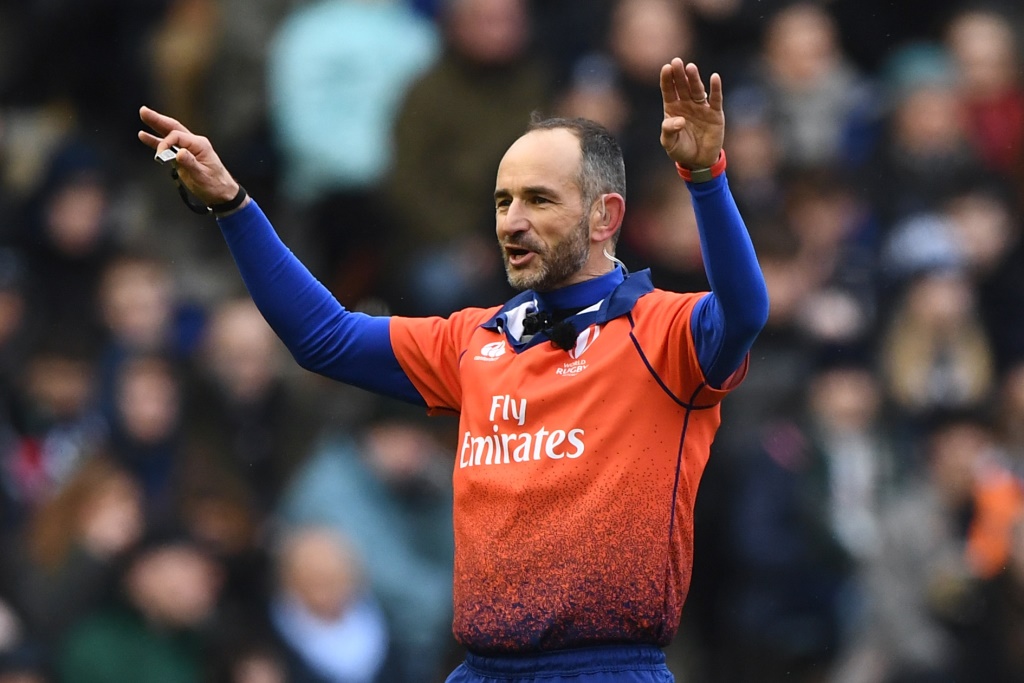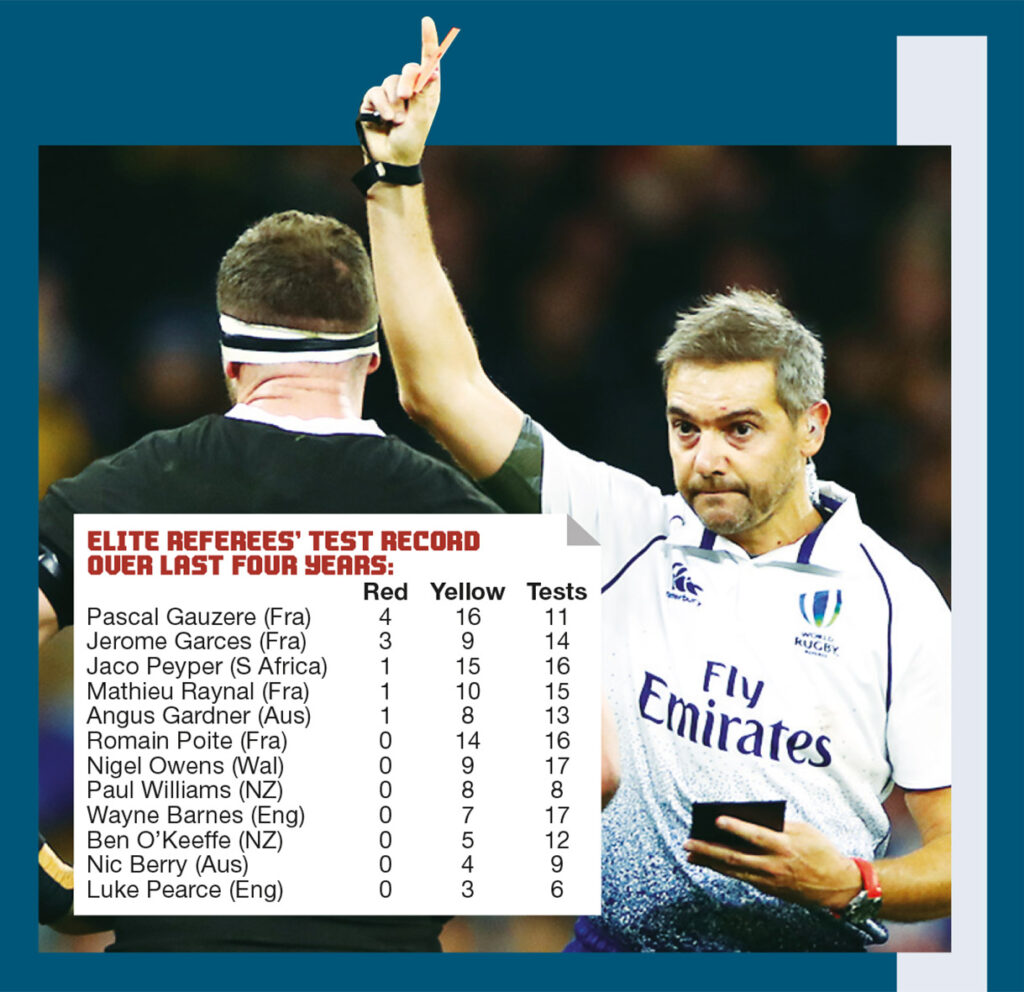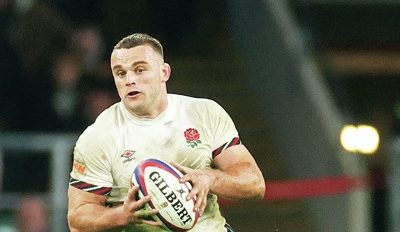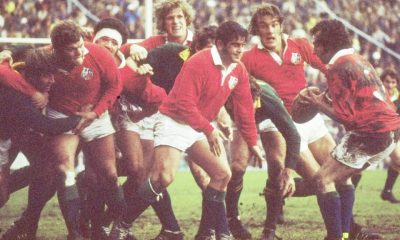
Ten players from Tier One nations have been sent off in Tests since the end of the last World Cup, almost all of them by a trio of French referees.
Jerome Garces, Pascal Gauzere and Mathieu Raynal issued eight of those red cards. All three will take charge of critical Pool matches in Japan from next weekend as part of a 12-man elite panel under renewed instruction to enforce the zero-tolerance policy towards those deemed guilty of dangerous tackles.
That three officials have accounted for 80 per cent of sendings-off over the last four years cannot be stretched into suggesting they have taken a harder line than their British counterparts, neither of whom has used a red card over the same period.
During that time, Nigel Owens and Wayne Barnes, the world’s two most experienced referees, have controlled a combined total of 34 Tests. Garces, Gauzere and Raynal clearly witnessed several incidents of serious foul play, hence their collective decision to use eight reds over the course of their 40 fixtures.
Given that no two games are alike, it cannot be proven that the Gallic trio take a harder line. The contrast in numbers may suggest they do but no such claim can be substantiated without examining every refereeing action in every Test since New Zealand won the last final.
The biggest match of the entire Pool competition sees a mighty collision between the holders and South Africa. Intriguingly, Garces will be in the middle and if the wider rugby world subscribes to the cynical view that referees take a more lenient approach to the All Blacks, then nobody has told the 45-year-old Frenchman from Pau.
He has given two of his three reds to New Zealanders – Sonny Bill Williams during the second Lions’ Test in Wellington two years ago and Scott Barrett for a no-arms hit to Michael Hooper’s head during the Wallabies’ eye-popping Bledisloe Cup win in Perth last month.
Despite criticism from a number of high-profile ex-internationals, Garces’ deservedly earned widespread acclaim for putting World Rugby’s edict into action. He could have ducked out and passed the buck to the citing commissioner for retrospective action but chose instead to act decisively and ensure the offending team paid the penalty on the pitch rather than continue with 15 men.
Both the holders and one of the main contenders for the title will be only too aware that neither can take any liberty with Garces. The management of both countries will have been warned that the tournament organisers cannot allow the showpiece event to be scarred by blows to the head or neck.
World Rugby have ensured that every layer of the disciplinary process – referees, citing commissioners, TMO’s and the judicial panels – are guided by the same charge sheet. Head high contact causing ‘a high degree of danger’ requires a red card, yellow for ‘a lower degree’.

Gauzere has done so on four occasions since the start of 2016 – England‘s Elliot Daly and Argentina prop Enrique Pieretto on the same afternoon at Twickenham followed by another Puma, Tomas Lavanini, and Australia’s veteran tighthead Sekope Kepu in separate matches.
A shoulder charge to Hamish Watson’s head at Murrayfield in November 2017 ensured Kepu his early bath. Scotland, therefore, will have good reason to welcome Gauzere’s appointment for their second match in Japan, against Samoa on September 30.
Wales play their critical Pool match against the Wallabies 24 hours earlier when the most experienced of all French arbitres, Romain Poite, will be responsible for law and order. Alun-Wyn Jones ought not require reminding of how a hopeful inquiry from his predecessor as captain, Sam Warburton, prompted Poite’s astonishing penalty
u-turn which allowed the Lions to escape from Eden Park with a drawn series. Warburton would be entitled to reflect on that as a sign that the gods were evening up the score for the fate that befell him at the same venue during the 2011 semi-final against France when Wales lost him to the most contentious of early baths.
The man who sent him off for a tip-tackle on Vincent Clerc will have a highly influential, if largely invisible role in how many will follow during the six weeks from next Friday. Alain Rolland has set the tone as World Rugby’s high performance manager for referees.
The law on dangerous tackles makes no allowance for those committed by accident. Intent, or lack of it, does not enter the equation which suggests dismissals in the ninth World Cup are likely to exceed those at any of the previous eight.
There have been surprisingly few, never more than four in the same tournament (1995 and 1999), never fewer than in 2003, completed from start to finish without a solitary red. Huw Richards could hardly claim to have set a trend when he made the long walk during the All Blacks’ semi-final blitz of Wales in Brisbane more than 30 years ago.
How Wayne Shelford avoided joining him as punishment for his retaliatory punch will remain a mystery after the tragically early passing of the referee who chose to send off one but not the other. Kerry Fitzgerald died at the age of 43 barely a month after the Wallabies won the golden pot at Twickenham in 1991.
PETER JACKSON / Getty Images


United Rugby Championship
Vaea Fifita’s commanding presence has Scarlets pushing for URC play-off spot

British and Irish Lions
British and Irish Lions Watch: Caelan Doris confirmed to miss the tour with injury

























You must be logged in to post a comment Login